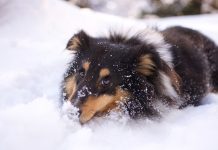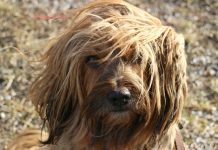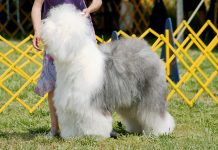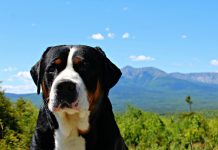History and Origins of the Samoyed Breed

The Samoyed breed, known for its striking appearance and friendly demeanor, has a rich history that dates back to ancient times. Here’s an overview of the history and origins of the Samoyed breed:
- Nomadic Origins:
- The Samoyed breed originated from the Samoyedic people of Siberia, particularly the nomadic Samoyed tribes who used these dogs for herding reindeer, pulling sleds, and guarding their camps.
- Samoyeds played a vital role in the daily lives of the Samoyedic people, assisting with hunting and survival in the harsh Arctic climate.
- Utility in Arctic Regions:
- Samoyeds were highly valued for their versatility and endurance in Arctic conditions. They were relied upon for transportation, hunting polar bears and seals, and providing warmth to their owners by sleeping alongside them.
- Exploration and Expedition:
- In the late 19th century, explorers and adventurers, including Fridtjof Nansen and Robert Scott, used Samoyeds on polar expeditions due to their strength, adaptability, and friendly nature.
- These expeditions contributed to the global recognition and popularity of the Samoyed breed.
- Breed Standardization:
- The first Samoyeds were brought to England in the late 19th century and exhibited in dog shows. In 1906, the Samoyed was officially recognized as a breed by the Kennel Club in the United Kingdom.
- The breed standard was established to preserve the unique characteristics and working abilities of the Samoyed.
- Companionship and Show Dogs:
- Over time, the Samoyed transitioned from a working breed to a beloved companion and show dog. They are admired for their friendly demeanor, intelligence, and striking appearance.
Today, the Samoyed remains a popular breed worldwide, cherished for its beauty, affectionate nature, and historical significance as a companion and working dog.
Physical Characteristics and Appearance of Samoyeds
Samoyeds are known for their distinctive appearance and fluffy white coat. Here are the key physical characteristics of Samoyeds:
- Size:
- Samoyeds are medium to large-sized dogs. Adult males typically stand between 21 to 24 inches (53 to 61 cm) at the shoulder, while females are slightly smaller, ranging from 19 to 21 inches (48 to 53 cm).
- They generally weigh between 50 to 65 pounds (23 to 30 kg).
- Coat:
- The most striking feature of the Samoyed is its dense, double-layered coat. The outer coat is long, straight, and harsh, while the undercoat is soft and thick to provide insulation.
- Samoyeds have a “snow-white” coat color, although they may have biscuit or cream markings on the ears and tips of the coat.
- Body:
- Samoyeds have a strong and muscular build with a compact body. They have a deep chest, level back, and well-developed hindquarters.
- The tail is plumed and carried curled over the back.
- Head and Expression:
- Samoyeds have a wedge-shaped head with a slightly domed skull and a well-defined stop.
- Their dark eyes are almond-shaped and convey a gentle and intelligent expression.
- The ears are medium-sized, erect, and set high on the head.
- Gait:
- Samoyeds have a smooth, graceful gait, reflecting their agility and endurance. They move with purpose and efficiency.
- Overall Appearance:
- Samoyeds have a friendly and alert demeanor. Their bright, “smiling” expression and fluffy coat make them instantly recognizable and appealing.
Samoyeds are known for their happy, outgoing personalities and gentle demeanor, making them excellent family pets and companions. Their stunning appearance and rich history as working dogs in Arctic regions contribute to their enduring popularity and admiration among dog lovers.
Samoyed Temperament and Personality Traits
Samoyeds are known for their friendly, gentle, and sociable nature. They are affectionate, intelligent, and outgoing dogs that form strong bonds with their families. Here are the key temperament and personality traits of Samoyeds:
- Friendly and Sociable:
- Samoyeds are extremely friendly and sociable dogs. They enjoy being around people, including children, and get along well with other pets when properly socialized.
- They are not typically aggressive and are known for their gentle demeanor.
- Affectionate and Loving:
- Samoyeds are affectionate dogs that thrive on companionship and attention from their families. They enjoy being part of daily activities and love spending time with their human companions.
- They are often referred to as “smiling” dogs due to their happy and expressive faces.
- Intelligent and Curious:
- Samoyeds are intelligent and curious dogs that enjoy mental stimulation and problem-solving activities. They respond well to training and enjoy learning new tricks and commands.
- Their intelligence can sometimes lead to independent thinking, but they are generally eager to please.
- Playful and Energetic:
- Samoyeds have a playful and energetic personality. They retain their puppy-like exuberance well into adulthood and enjoy engaging in games and activities with their families.
- Regular exercise and playtime are essential to keep them happy and prevent boredom.
- Alert and Watchful:
- Samoyeds are naturally alert and watchful dogs. They make excellent watchdogs and will alert their owners to any unusual activity or visitors.
- While they are not guard dogs in the traditional sense, their presence and bark are enough to deter intruders.
- Independent Yet Loyal:
- Samoyeds have an independent streak but are loyal to their families. They enjoy having their own space at times but will always seek companionship and affection from their loved ones.
- They can be vocal at times, expressing themselves through barking, especially when they want attention or are excited.
- Adaptable:
- Samoyeds are adaptable dogs that can thrive in various environments, from apartments to larger homes with yards. They enjoy outdoor activities but also appreciate indoor comforts.
- They are well-suited for both city and rural living, as long as their exercise and companionship needs are met.
Training and Socialization Needs for Samoyeds
- Early Socialization:
- Start socializing your Samoyed puppy early to expose them to different people, animals, and environments. This helps prevent shyness or fearfulness later on.
- Introduce them to various situations and experiences positively to build their confidence.
- Positive Reinforcement Training:
- Use positive reinforcement techniques, such as treats, praise, and rewards, to train your Samoyed. They respond well to gentle and consistent training methods.
- Keep training sessions fun, engaging, and short to maintain their interest.
- Obedience Training:
- Teach basic obedience commands, such as sit, stay, come, and leash manners, from a young age. Samoyeds are intelligent and eager to learn.
- Use consistent training routines and avoid harsh discipline, as they can be sensitive.
- Exercise Requirements:
- Samoyeds are active dogs that require regular exercise to keep them physically and mentally stimulated.
- Provide daily walks, playtime, and interactive games to prevent boredom and excess energy.
- Channel Energy Appropriately:
- Engage your Samoyed in activities that utilize their natural instincts, such as fetch, agility, or obedience trials. They excel in various canine sports.
- Be mindful of hot weather conditions, as Samoyeds are sensitive to heat due to their thick coat.
- Attention and Companionship:
- Samoyeds thrive on attention and companionship. Spend quality time with your Samoyed, including cuddling, grooming, and interactive play.
- Avoid leaving them alone for long periods, as they may develop separation anxiety or destructive behaviors.
By providing proper training, socialization, and exercise, you can help your Samoyed develop into a well-behaved and well-adjusted companion. Their friendly and loving nature makes them wonderful family pets for active households that can meet their needs for attention and activity.
Health Considerations and Common Issues in Samoyeds

Samoyeds are generally a healthy and robust breed, but like all dogs, they may be prone to certain health conditions. Being aware of these common issues can help you provide the best care for your Samoyed:
- Hip Dysplasia:
- Hip dysplasia is a genetic condition where the hip joint doesn’t develop properly, leading to arthritis and mobility issues.
- Regular exercise and maintaining a healthy weight can help manage symptoms. Severe cases may require surgical intervention.
- Progressive Retinal Atrophy (PRA):
- PRA is a hereditary eye disease that causes gradual degeneration of the retina, leading to blindness.
- Responsible breeders perform eye screenings to minimize the risk of passing on PRA to offspring.
- Diabetes:
- Samoyeds may be prone to diabetes, a metabolic disorder that affects blood sugar levels.
- Proper diet, regular exercise, and insulin therapy can help manage diabetes in dogs.
- Hypothyroidism:
- Hypothyroidism is a common endocrine disorder in Samoyeds, characterized by insufficient thyroid hormone production.
- Symptoms include weight gain, lethargy, and coat changes. Treatment involves lifelong hormone replacement therapy.
- Degenerative Myelopathy (DM):
- DM is a progressive neurological disease that affects the spinal cord, leading to hind limb weakness and paralysis.
- There is no cure for DM, but physical therapy and supportive care can help manage symptoms and improve quality of life.
- Dental Issues:
- Samoyeds are prone to dental problems, including tartar buildup, gum disease, and tooth loss.
- Regular dental care, such as brushing and dental treats, can help prevent dental issues.
- Allergies:
- Samoyeds may develop allergies to food, pollen, or environmental factors, leading to skin irritation and itchiness.
- Identifying and avoiding allergens, along with veterinary treatment, can help manage allergies.
- Heart Conditions:
- Some Samoyeds may be susceptible to certain heart conditions, such as mitral valve disease or cardiomyopathy.
- Regular veterinary check-ups and screenings can help detect heart issues early and facilitate appropriate treatment.
Living with a Samoyed: Suitable Environments and Lifestyle Considerations
Samoyeds are adaptable dogs that can thrive in various environments, but they have specific needs and considerations that potential owners should be aware of:
- Indoor Living:
- Samoyeds can adapt to indoor living but require sufficient space and regular exercise to prevent boredom and behavioral issues.
- They do well in homes with access to a fenced yard where they can safely play and explore.
- Exercise Requirements:
- Samoyeds are active and energetic dogs that need daily exercise and mental stimulation.
- Provide regular walks, playtime, and interactive activities to keep them physically and mentally engaged.
- Grooming Needs:
- Samoyeds have a thick double coat that requires regular grooming to prevent matting and tangles.
- Brush their coat several times a week and more frequently during shedding seasons to maintain their coat’s health and appearance.
- Temperature Sensitivity:
- Samoyeds are adapted to cold climates and may struggle in hot weather due to their dense coat.
- Provide access to shade, fresh water, and indoor cooling during warm weather to prevent heat-related illnesses.
- Socialization and Training:
- Start socializing and training your Samoyed from a young age to ensure they are well-mannered and confident.
- Positive reinforcement training methods work best with Samoyeds, as they respond well to praise and rewards.
- Attention and Companionship:
- Samoyeds thrive on companionship and enjoy being part of the family. They may develop separation anxiety if left alone for long periods.
- Spend quality time with your Samoyed, including interactive play, training sessions, and affectionate bonding.
- Health Monitoring:
- Schedule regular veterinary check-ups and screenings to monitor your Samoyed’s health and detect any potential issues early.
- Stay proactive about preventive care, vaccinations, and parasite control to maintain their overall well-being.
By understanding the specific health considerations and lifestyle needs of Samoyeds, you can create a suitable environment and provide optimal care for your beloved canine companion. Regular veterinary care, proper nutrition, exercise, grooming, and socialization are essential components of responsible Samoyed ownership.
Samoyed Variations and Breeding Practices
The Samoyed breed is relatively consistent in appearance and temperament, with breeders typically adhering closely to established breed standards. However, variations within the Samoyed breed can occur due to factors such as coat color, size, and minor differences in physical features. Here are some aspects related to Samoyed variations and breeding practices:
Coat Color Variations:
- White: Samoyeds are known for their striking, fluffy white coats, which are their most defining feature. While white is the predominant color, slight variations in shade or markings may occur.
- Biscuit Markings: Some Samoyeds may have biscuit or cream-colored markings on the ears or around the face. These markings are not extensive and are considered acceptable within the breed standard.
Size Variations:
- Standard Size: The Samoyed breed generally has a standard size range, with adult males typically standing between 21 to 23.5 inches (53 to 60 cm) at the shoulder and females slightly smaller, ranging from 19 to 21 inches (48 to 53 cm).
- Weight: Samoyeds typically weigh between 45 to 65 pounds (20 to 30 kg), with males being heavier than females on average.
Breeding Practices for Samoyeds:
- Health Screening: Responsible Samoyed breeders prioritize the health and well-being of their dogs and puppies. They conduct health screenings for genetic conditions such as hip dysplasia, progressive retinal atrophy (PRA), and other hereditary issues to ensure that only healthy dogs are used for breeding.
- Breed Standard: Breeders adhere to the Samoyed breed standard set by kennel clubs and breed organizations, focusing on maintaining the characteristic appearance, temperament, and working abilities of the breed.
- Genetic Diversity: Maintaining genetic diversity within the Samoyed gene pool is important to prevent the accumulation of genetic disorders and preserve the overall health and vitality of the breed.
- Ethical Practices: Reputable breeders follow ethical breeding practices and guidelines, including proper socialization, early puppy care, and responsible placement of puppies into suitable homes.
- Preservation of Working Ability: While most Samoyeds today are kept as companion animals, some breeders may still prioritize preserving the breed’s original working abilities, such as sledding, herding, and guarding instincts.
Rare Varieties and Crossbreeding:
- While Samoyeds are primarily bred according to the standard, there may be rare variations or deviations in coat color or markings that occur naturally within the breed.
- Crossbreeding with other breeds is generally discouraged among responsible breeders to preserve the unique characteristics and heritage of the Samoyed breed.
Overall, Samoyed breeders strive to produce healthy, well-rounded puppies that conform to the breed standard and exhibit the friendly, gentle temperament that the breed is known for. When choosing a Samoyed puppy, it’s essential to work with reputable breeders who prioritize the health, welfare, and quality of their dogs, ensuring a positive and successful experience for both the puppy and their new family.
55 Best Names with Meanings for Samoyeds
Naming your Samoyed can be a fun and meaningful experience! Here are 55 great names with meanings for Samoyeds:
Male Samoyed Names:
- Kai – Means “ocean” in Hawaiian.
- Loki – From Norse mythology, representing mischief.
- Hiro – Means “generous” or “prosperous” in Japanese.
- Aspen – Named after the tree, symbolizing strength and resilience.
- Bodhi – Represents enlightenment and awakening.
- Casper – Means “treasurer” in Persian.
- Milo – Symbolizes “soldier” or “merciful” in German.
- Finn – Means “fair” or “white” in Irish.
- Sasha – Means “defender of mankind” in Russian.
- Koda – Represents “friend” in Native American.
- Oscar – Derived from Gaelic, meaning “champion warrior.”
- Apollo – Named after the Greek god of the sun.
- Cody – Means “helpful” or “pillow” in Gaelic.
- Zephyr – Represents the gentle west wind.
- Bowie – Inspired by the musician David Bowie.
- Misha – Means “bear” in Russian.
- Harley – Symbolizes a meadow or hare’s field.
- Rocco – Represents “rest” or “repose” in German.
- Jasper – Named after the gemstone, symbolizing healing and protection.
- Bandit – Represents a thief or rogue.
- Kairos – Means “opportune moment” in Greek.
- Ragnar – From Norse mythology, symbolizing wisdom and power.
- Tucker – Means “fabric pleater” in Old English.
- Scout – Represents a lookout or explorer.
- Cyrus – Means “sun” in Persian.
Female Samoyed Names:
- Luna – Represents the moon in Latin.
- Willow – Named after the tree, symbolizing grace and flexibility.
- Aurora – Represents the dawn or northern lights.
- Misty – Symbolizes a thin veil of water droplets.
- Nova – Means “new” or “young” in Latin.
- Stella – Represents “star” in Latin.
- Mila – Means “dear” or “gracious” in Slavic.
- Lola – Represents “sorrows” or “lady of sorrows.”
- Gigi – Derived from the French “jolie,” meaning “pretty.”
- Zara – Means “princess” in Arabic.
- Ivy – Named after the climbing vine, symbolizing fidelity.
- Echo – Represents a sound reflection.
- Ruby – Named after the gemstone, symbolizing passion and energy.
- Aria – Means “air” or “melody” in Italian.
- Bella – Represents “beautiful” in Italian.
- Daisy – Symbolizes innocence and purity.
- Misty – Represents a thin veil of water droplets.
- Piper – Represents “flute player” or “pipe player.”
- Suki – Means “beloved” or “liked” in Japanese.
- Zoey – Means “life” in Greek.
- Willow – Named after the tree, symbolizing grace and flexibility.
- Nala – Means “gift” in Swahili.
- Scout – Represents a lookout or explorer.
- Juno – Named after the Roman goddess, symbolizing vitality and youth.
- Misty – Represents a thin veil of water droplets.
Gender-neutral Samoyed Names:
- Coco – Represents “chocolate” in Spanish.
- Sunny – Symbolizes brightness and warmth.
- Skye – Named after the sky, representing infinity and vastness.
- Blaze – Represents a bright flame or fire.
- Mika – Means “beautiful fragrance” in Japanese.
Choose a name that resonates with your Samoyed’s personality, appearance, or the qualities you admire. Whether you prefer a traditional name with a meaningful origin or a unique name inspired by nature or mythology, the right name will be a perfect fit for your beloved Samoyed companion.

In conclusion, this comprehensive guide to Samoyed dogs has provided a detailed overview of this beautiful and versatile breed. Throughout our exploration, we’ve delved into the history, distinctive characteristics, and essential care considerations that define Samoyeds. Known for their friendly nature, intelligence, and striking appearance, Samoyeds make wonderful companions for families and individuals seeking a loving and energetic pet. They excel in activities such as agility, obedience, and therapy work, showcasing their adaptability and sociable demeanor. As you embark on your journey with a Samoyed, may you appreciate their unique qualities and form a strong bond with this delightful breed, creating lasting companionship and joy together.



























